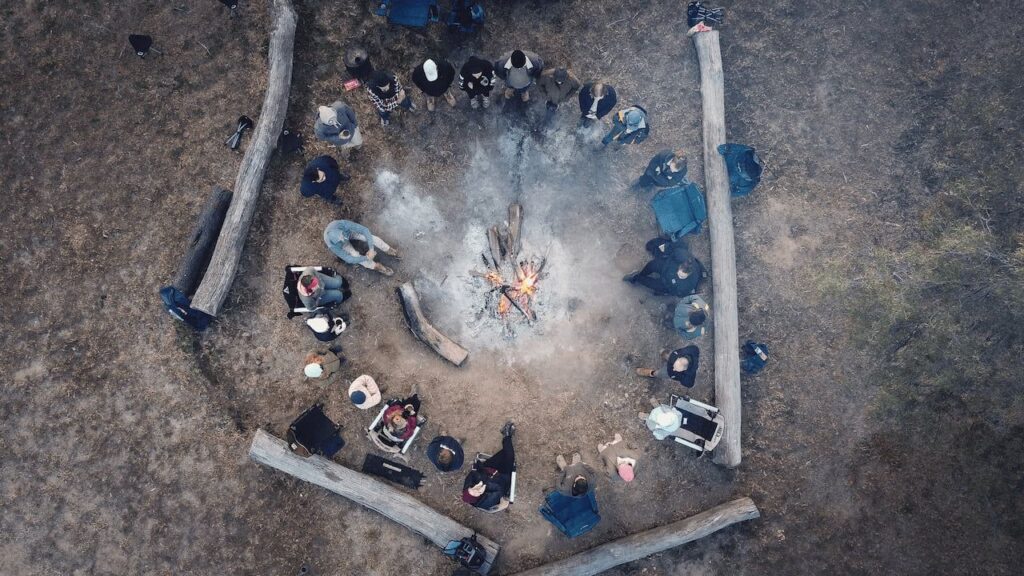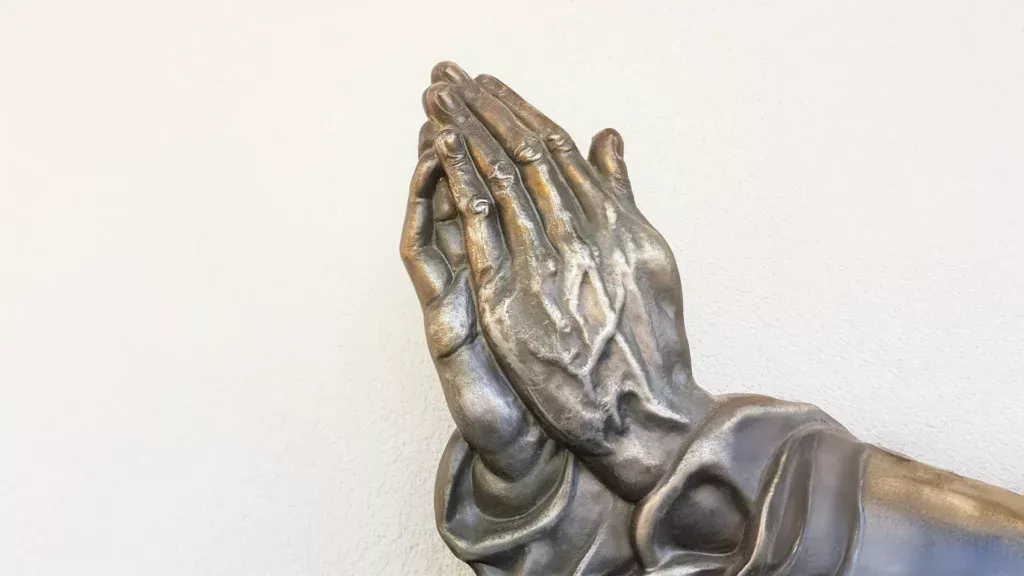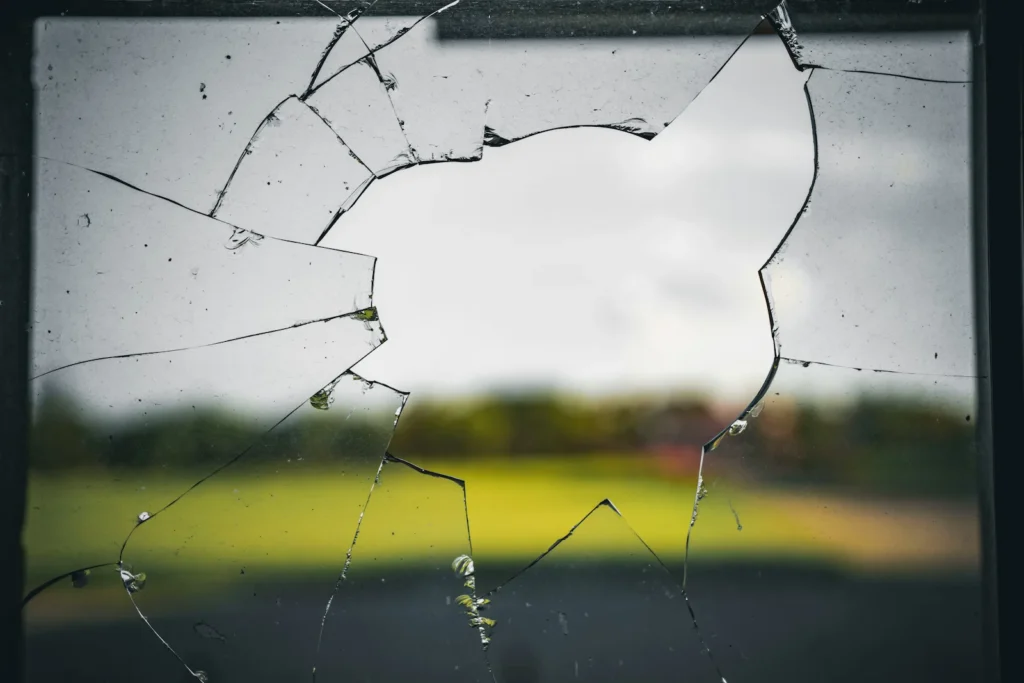First Nations
Why we start church with an Acknowledgement of Country each Sunday
If you’ve ever visited us (or made it to the bottom of our website), you will have noticed we start every service with an Acknowledgement of Country. This means recognising the traditional custodians of the land on which we’re gathering.
•

Since we began meeting in January 2023, we’ve received some pretty strong feedback (both positive and negative) on this practice. It turns out it can be pretty polarising! It’s always good to stay connected to the ‘why’ of whatever we do, so this post is a simple explanation of why we acknowledge country at every Sunday gathering.
Importantly, this isn’t going to be a case for (or against) the practice in general. This debate has been addressed well elsewhere—for example, this piece from Eternity News, which includes links to a case both for and against. If you’re looking for an overview of the debate around Acknowledgement of Country, start there. Rather, this post will explore why we as Toowoomba Vineyard Church chooses to do this every week.
It’s not a political thing
Before I launch in, it’s important to say that our decision to adopt this practice isn’t because of some kind of political agenda.
We live in a day where people falsely assume that beliefs come in sets. In other words, if you believe A, you must also believe B, C, and D as well. While there is often a correlation between certain beliefs, it’s important to recognise that belief systems are usually more nuanced than that. If you want a bit more explanation on this, check our recent podcast which touches on the topic.
All of that is to say we’re not trying to push some kind of socially liberal agenda by adopting one practice that could be seen as left-wing or progressive. Our agenda is the Kingdom of God as described by Jesus in the gospels.
Reconciliation is at the heart of the good news
Speaking of Jesus — as a Vineyard Church, we have quite a specific take on what the good news of Jesus (or ‘gospel’) means. You can read more about it on our what we believe page, but in short, the gospel is this: that through the death and resurrection of Jesus, God is fulfilling his plan to make all things new. He’s restoring all that is broken. He’s reconciling all past hurt.
Note the use of present continuous case in the previous statements. This new reality (the ‘Kingdom’) began with Jesus 2000-ish years ago, but won’t reach its fulfilment until he one day returns. In this now-and-not-yet in-between times, God has released His spirit to his followers to continue Jesus’ work of making all things new. It’s our job, as the church, to bring restoration and reconciliation into every broken situation as we are led (and empowered) by the Spirit.
If I look at our society, one of the biggest needs for reconciliation is our nation’s past. The facts on our history are very clear. European settlement was disastrous for the people who were already inhabiting Australia. The awful treatment of our First Nations people has led to a deeply rooted, systemic inequality that continues today.
If we take the good news of Jesus seriously, pursuit of reconciliation for this past injustice in our nation is critical. It might not have been us personally who perpetrated the crimes we read about in the history books. Yet as the church, we should be willing to take responsibility anyway, and work towards healing.
After all, that’s what Jesus did for us.
Our connection to first nations
In addition to our theology as a Vineyard, this practice is related to our own journey as pastors. Over the last few years, Jen and I have been a part of the journey with RAW Impact beginning a programme with First Nations in Australia. We’ve been out ‘On Country’ several times.
These trips include a service component—getting on the tools to help facilitate the nations’ own plans for growth. The other, perhaps more important part of this is building relationship with the elders.

As we’ve heard their stories, we’ve learned so much. Long-standing assumptions have been broken down. Significantly, I have come to realise that they don’t hold hostility towards me as someone of European descent. Their desire is for friendship and mutual understanding. When you build relationship in this way, it stops being a political issue and starts being about doing the right thing by your friends.
Given this personal connection, we planted Toowoomba Vineyard Church with reconciliation as a founding principle.
Acknowledgement is not enough
Building an Acknowledgement of Country into our run sheet is a good step towards fostering a culture that values reconciliation. But it isn’t enough. These words need to be accompanied by action. Some actions we can take, as individuals and as a church, include:
- Prayer. We have a direct line to the God of the universe—we can use that to pray for justice in our land.
- Service. The RAW On Country trips are a good example of practical service to support our First Nations brothers and sisters.
- Education. Learning about our history, and the current issues hindering reconciliation, are an important action.
- Relationship. For us, this has been the game changer. Getting to know First Nations people, and building genuine friendship, is a step towards change.
As a church, we’re still working it out. Since beginning, we have changed the language in our Acknowledgement several times. Our posture remains one of growth. And our desire is to see deep-rooted change in our city and nation.
4 responses to “Why we start church with an Acknowledgement of Country each Sunday”
-
Hi Jen & Chris,
Seeking forgiveness and reconciliation is at the core of the gospel regardless of race (and I strongly support your endeavours in this regard) but to begin each week by reading what you know is a very divisive statement that is a stumbling block for many, though meaning well, is actually inconsistent with your goal of reconciliation, as it offends those who consider the statement typifies failed political means to address racial disadvantage that the gospel is best to address.
Whilst some undoubtably agree with your practice, it unfortunately deters others from attending your services.-
G’day Bruce, thanks for taking the time to comment on this! Sorry it’s taken us a little while to respond, the post was initially marked as spam for some reason.
Wondering if you had a chance to read through the article, as I feel your objections are covered in the first section. In our services we don’t read a statement, rather we express it in a slightly different way each time for exactly the reasons you articulated. For us, it’s important that the acknowledgement isn’t just lip service, or a political thing, but rather a heartfelt expression of our commitment to see much needed social change in our lifetime. A lot of the pain and heartache felt by our first nations communities is a lack of recognition and understanding, so acknowledgement is a very meaningful step we can take towards recognition and healing.
It’s also worth recognising the acknowledgement we do each week is received in different ways by members of our community. For some people it’s the reason they joined us in the first place. For others it’s difficult, but they’re willing to work with it because the community suits them in other ways. For many, it started off as a challenge but has opened up the door for learning and a change of heart.
We’re very grateful to have friendship with many of the pastors and ministers in town, who lead some beautiful churches. If you’re looking for a place to find fellowship get in touch and we can connect you to one that might be a good fit. At the time of writing I believe we’re the only church in Tba that does an acknowledgement of country and we’re aware it’s not for everyone. Also feel free to engage if you have any further thoughts counter to the above!
-
-
Hi Chris, great to see you are doing Acknowledgements of Country each week, and have taken the time to explain your commitment to your and our First Nation friends. It’s divisive for sure, but is so important. The Uniting Church has long been committed to healing; many congregations take time to acknowledge Country too. Keep up the great work.
-
Thanks for taking the time to comment Anni. Yes it is so important!
-
More posts

2026: The year of experiments
What does it look like to live out our Matthew 11:28-30 vision in 2026? We’re glad you asked…

A prayer for our enemies
In an increasingly divided world, praying for our enemies is a profound act of resistance. Here’s a helpful framework.

What is Christian Fundamentalism? A brief overview, and how to respond in love
As a church, we talk a lot about transforming culture. But to transform something, we first have to understand it.
How to connect
Are you looking for a church to call home? Want to learn more about Jesus or Christianity? We’d love to connect. You can get in touch at the link below, or visit us on Sunday.
Leave a Reply